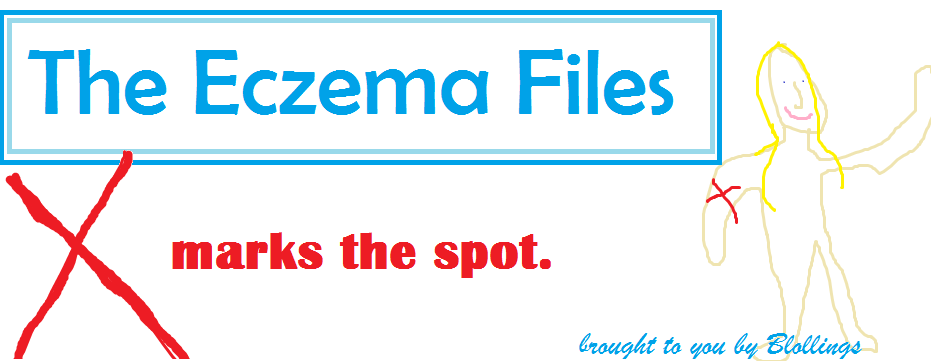If you haven't yet read the NHS's information on the causes of Contact Dematitis and Atopic Eczema, it is quite useful. Some things, like animals, plants or woolly clothes, cause an eczema reaction whereas others cause the skin to dry out, like soaps, which then aggravates the eczema. What's interesting is that in my experience, some eczema triggers are very obvious (for me, contact with cat hair or fruit juice from kiwis or melons causes an IMMEDIATE eczema reaction) but some are bit more unexpected and sneaky. You might not realise these are causing your eczema but avoiding such triggers can make a difference.
This is different for everyone, but here are my experiences that may help you consider something you hadn't thought of.
1. Stress
It comes first because its the Big Guns. Stress triggers eczema, IBS AND wrinkles!! It's an absolute nightmare. I'm not going to advise you how to avoid stress because I have literally no idea, but I do know its a disaster to combine stress with...
2. Lack of Sleep
Your skin repairs itself during the night. I often find that if my eczema is being a bit untameable, scheduling a LONG sleep where I sleep without alarms until I wake up naturally, gives my skin a new lease of life. This is an excellent activity for a Sunday because its what Sundays were designed for!
3. Alcohol
This is often linked with lack of sleep....hangovers are itchy, itchy days. Try to have a lot of water when drinking alcohol to avoid dehydration and also monitor what drinks you have. For example, I find I have a much stronger reaction to cider and fizzy drinks than wine. White wine is mainly fine but red wine = red face. Its weird.
4. Shampoo
Its pretty obvious that if you have eczema on your body, you should assess what body wash you're using. But I was astonished to find out that shampoo and conditioners can be equally as damaging. This comprehensive blog by Luxlife really opened my eyes to how many different ways eczema can be aggravated. When you wash out shampoo the soapy water will probably run all down your back, and it caused me back eczema. I'll be writing a longer post about the shampoos I've been using soon...
5. Spray deodorants and hairsprays
Cutting spray deodorants and hairspray out of my daily routine helped me get to grips with my eyelid eczema. I have my own idea why, which is based more on my imagination than any science, but I think when you use these sprays small specks of the chemicals inevitably end up on your face. And, obviously, hair spray isn't going to be pleasant on sensitive skin. The thought of spraying my face with hairspray to 'set' my make up makes me want to peel my skin off.
Its clearly easy to switch to a roll-on deodorant from a spray, but hairspray is a bit harder to replace. When I use it I always go to a different room, cover my eyes and spray my head then RUN like a stealthy cat back to my bedroom. I've also found there is a difference between hairsprays. At the moment I'm using Welle Professionals System Professional Perfect Hold hairspray. You can only get it from salons or online, but they sell handy travel size cans if you want to try it out.
I'm not going to lie: even though I've been avoiding all these things I still currently have full body eczema that won't shift. BUT (and this is a massive, touch-wood but) I don't have eyelid eczema at the moment and very little face eczema.
